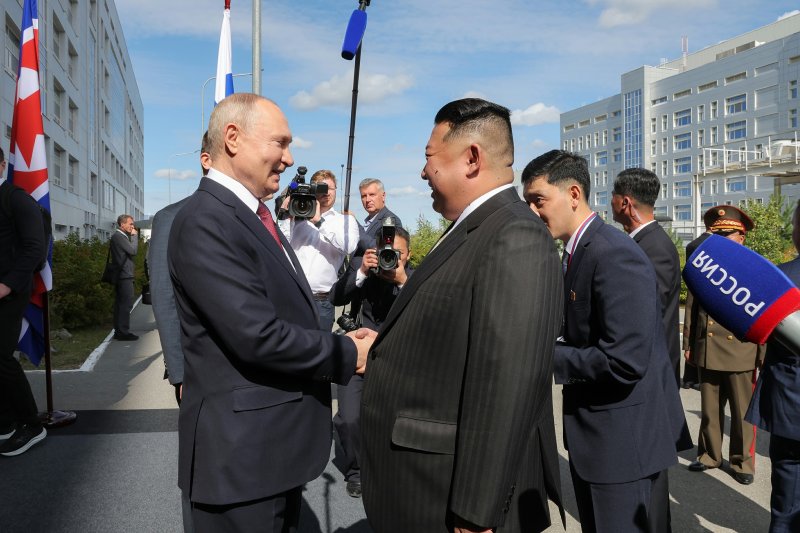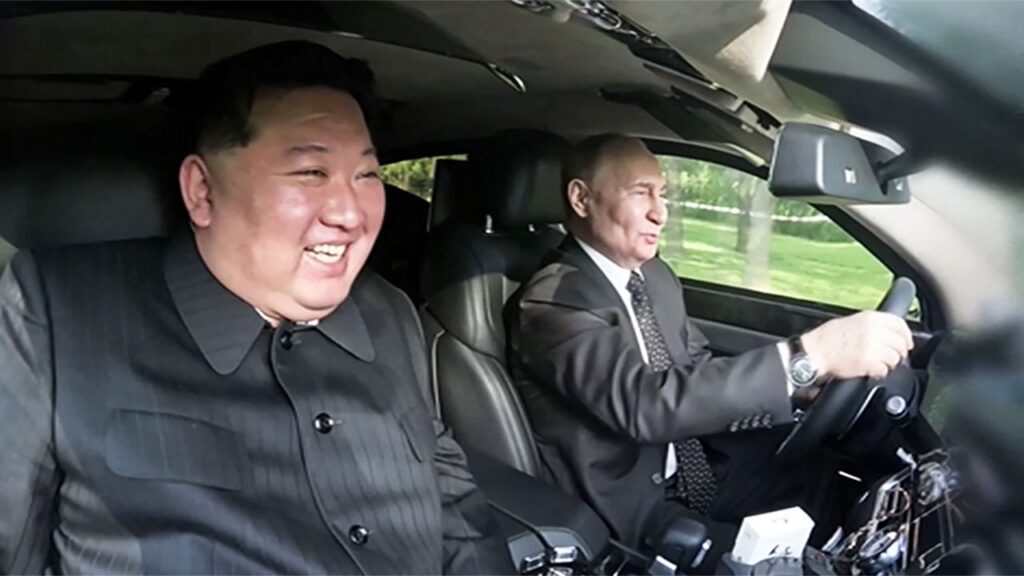The agreement has raised alarms in both the
diplomatic and military spheres. Given the ongoing
armistice between North and South Korea
By: Kim Tea-hoon

Russian President Vladimir Putin met with North Korean leader Kim Jong-un in a high-profile summit that culminated in the signing of a “Comprehensive Strategic Partnership Agreement.” One of the key provisions, outlined in Article 4, states that “if either party enters a state of war due to military invasion, the other party will provide immediate military and other assistance.” This clause has sparked international concerns, particularly about the security of South Korea and the broader stability in Northeast Asia.
Implications for Global Security
The agreement has raised alarms in both the diplomatic and military spheres. Given the ongoing armistice between North and South Korea, the potential for military collaboration between Russia and North Korea could disrupt the balance of power in the region. Additionally, this deal may offer Russia legal justification for importing weapons from North Korea, including artillery shells—an immediate threat to Ukraine amid its ongoing war with Russia.
According to South Korea’s Ministry of National Defense, around 12,000 containers, believed to be carrying artillery shells, were shipped from North Korea to Russia between August 2023 and July 2024. In exchange, North Korea is seeking advanced Russian technology, such as reconnaissance satellite systems. These transactions violate existing UN Security Council sanctions against North Korea, further escalating global tensions.

North Korean Weapons in Ukraine Conflict
North Korean weapons have reportedly been used by Russian forces to attack Ukrainian civilians, violating international humanitarian law. Evidence provided by Ukraine shows that artillery shells supplied by North Korea have been employed in strikes on civilian infrastructure. In February 2024, Russia launched more than 20 North Korean ballistic missiles at Kyiv and other regions, leading to the deaths of at least 24 civilians and injuring over 100.
The violence escalated in August when Russian forces used four North Korean KN-23 short-range ballistic missiles to strike major Ukrainian cities, killing two civilians, including a 4-year-old child. Civilian casualties have continued to rise, with missile debris from a North Korean Hwasong-11 identified in an April UN report.
Putin’s War Crimes and ICC Arrest Warrant
In March 2023, the International Criminal Court (ICC) issued an arrest warrant for Vladimir Putin on charges of war crimes, including the forced relocation of Ukrainian children. This development has turned Putin into a “wanted fugitive,” limiting his international travel and putting him at risk of arrest in any of the 124 ICC member states.
Despite Russia’s denials of war crime allegations, the ICC’s ruling has significantly pressured Putin and his government. The arrest warrant has become a symbolic and psychological tool, emphasizing accountability for crimes against humanity.

International Community’s Call to Action
The strategic partnership between Putin and Kim Jong-un not only jeopardizes regional security but also threatens Ukrainian civilians. The international community must act decisively to condemn Kim Jong-un’s regime for its role in these atrocities. Strong diplomatic pressure and sanctions are essential to deter North Korea from further supplying weapons to Russia.
While Putin faces the consequences of his actions through international legal mechanisms, Kim Jong-un should not escape similar scrutiny. The time has come for the global community to intensify its efforts in holding both leaders accountable for their actions, which are endangering the lives of innocent civilians.






















